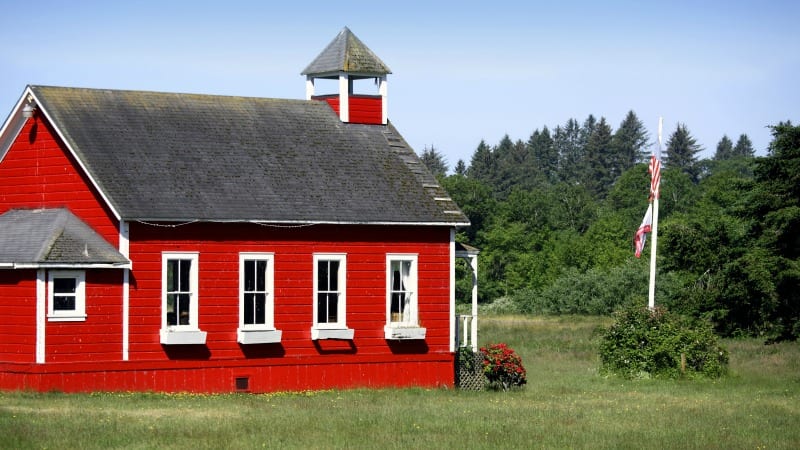My teaching career has spanned four different towns in two capital cities on both sides of the Atlantic. I’ve seen just about every urban education problem you can imagine—from overcrowding and poverty, to bomb threats and refugee programs.
However, some of my formative years were spent in sleepy rural schools and it was there that I honed my craft and learned how to improvise.
You see, as much as city administrators may complain about tight budgets, they are often the first places to see cash injections, resource upgrades, and benefit from visiting performers. One urban school I taught at had regular performances from the capital opera house, just because they were nearby and it made a convenient rehearsal for them!
Teachers in rural schools may seem like they have it made, with smaller class sizes and all that green space, but it’s often more challenging than people think. Here are some things only a rural teacher would understand.
1. If you forget your lunch, you’re going to go hungry.
If you have a long commute to your school and it isn’t close to amenities like a grocery or convenience store, you’re going to need to pack a sandwich.
2. Your class might be small but…
Small class sizes might sound appealing, but many rural schools are forced to combine different age groups which presents a whole new set of challenges. It’s not as simple as having to provide differentiated work at multiple levels. Teachers of mixed classes also need to take into account the varying developmental stages of the children in their class.
3. You’re going to wear a lot of different hats.
Small, rural schools often have less faculty as well as fewer children. This means that you may well be responsible for a variety of different subject and after-school activities. Think soccer coach, English teacher, and drama club advisor.
4. There will be lots of community involvement.
Rural communities are often more tightly knit than urban areas and people tend to participate in local events en masse. You’ll arrange bake sales, community get-togethers, town hall meetings, summer fairs—the list is endless.
5. Your talents will be used.
Do you play the piano? Guitar? Know how to sing? Your talents and special abilities are going to be put to good use in a rural school.
6. You’ll hear imaginative excuses from your students.
“My dog ate my homework” has never been a very convincing excuse. When you are a teacher in a rural school you’re more likely to hear “my goat ate my homework” or “we stayed up all night because a new calf was born.”
7. You are never off duty.
One of the downsides of country living is that everyone knows everyone’s else’s business. As a teacher, you will be esteemed as a pillar of the community and will be expected to uphold the highest moral conduct at all times. You’ll likely answer questions about the math curriculum in the grocery store or explain the phonics program during your yoga class!
8. You’ll feel forgotten by government initiatives.
All the shiny new technology and big educational rollouts tend to go to the big cities first. Whether it’s smart boards, new books or simply new researched approaches to the teaching of a particular subject, your rural school will likely be at the back of the line.
9. You’ll be a sports star.
Because rural schools have fewer staff, you’re more than likely to be asked to lead a sport, even if you are not a particularly athletic person. Get your tennies on and your whistle ready!
10. You will go to work sick.
Teachers everywhere begrudgingly go into the classroom when they are not really well enough to be working not only out dedication their students, but also because they realize planning for a replacement is just as much, if not more, work.
For rural teachers with more limited resources, this guilt is heightened by the fact that finding a substitute teacher will probably be very difficult and you may well end up inconveniencing your colleagues.
11. You’ll end up teaching past students’ kids.
As rural communities are not as mobile as urban sprawls, if you stay in the community long enough you may end up teaching your past students’ kids. Warning: this can make you feel really old.
12. You appreciate the daily outdoor education.
Being a rural teacher can make you feel very grateful for the environment in which you work. City kids often only get to explore the great outdoors every few years on a farm excursion or residential trip, but you and your kids get to live it every day!

